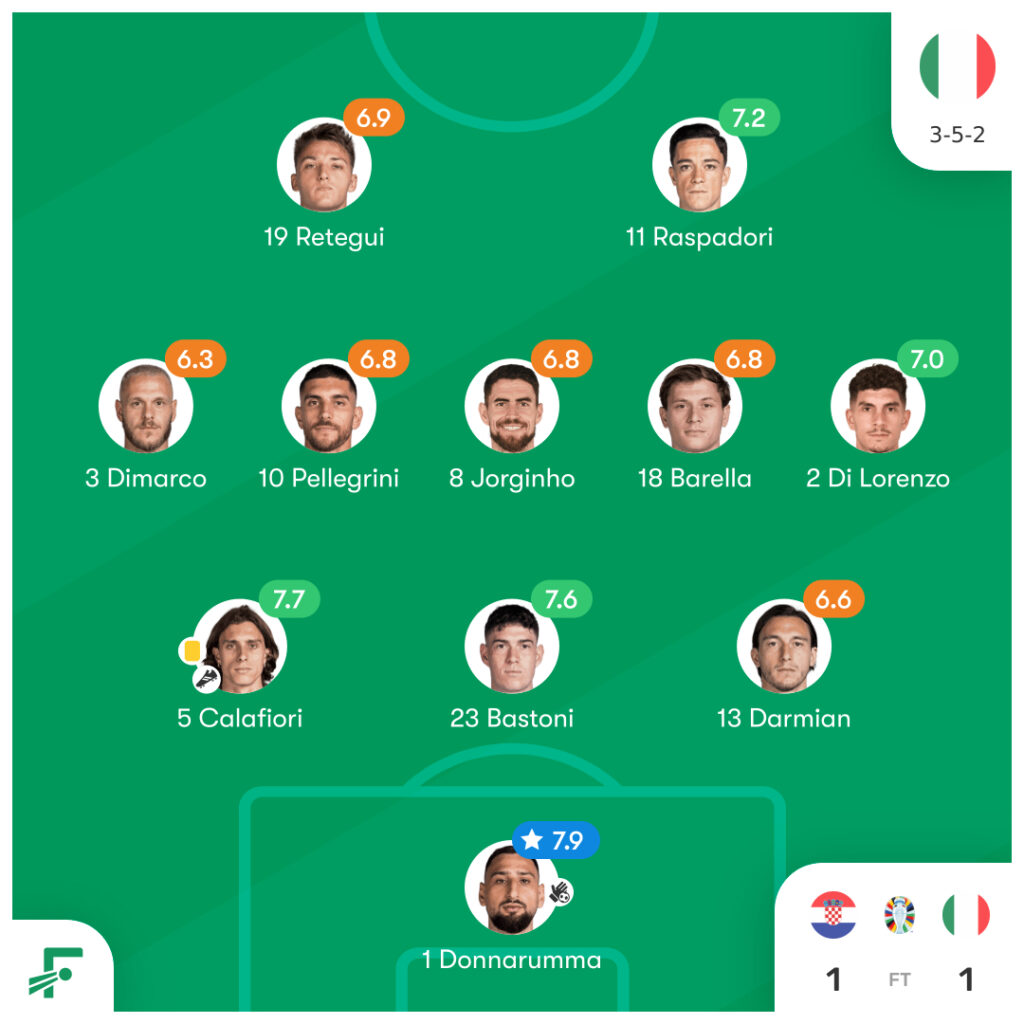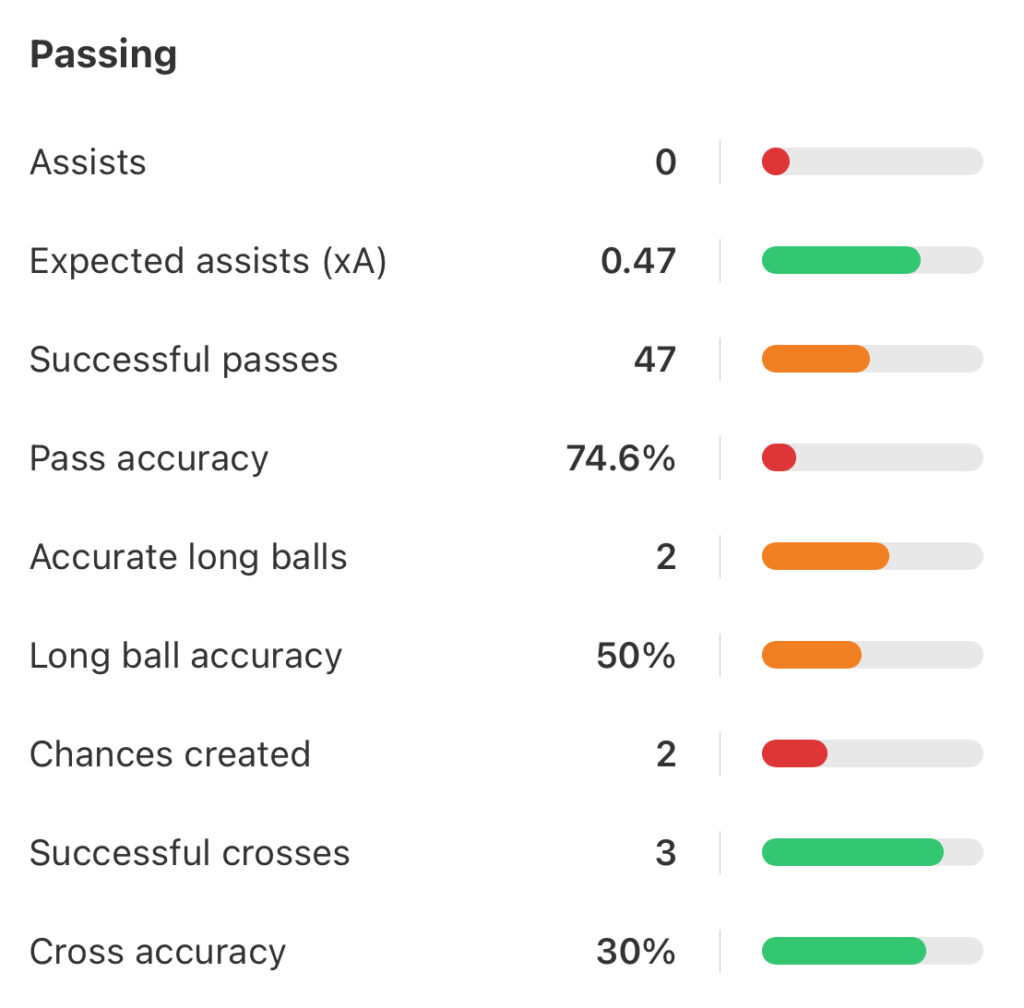Assessing Italy’s weaknesses after EURO 2024 group stages
Italy managed to scrape through to the knockout stages of EURO 2024 because of a fantastic Mattia Zaccagni goal in stoppage time against Croatia. But they have problems in the side that will hold them back in the entire tournament, as Switzerland beckon in the Round of 16.
Luciano Spalletti made a host of changes against Croatia and while it helped the Azzurri yield a result that suited them, it definitely doesn’t shore up the larger problems in the squad. It was a change in formation, as the reigning European champions played a 3-5-2 and often looked assured in and out of possession, but always seemed to lack that killer instinct around the final third.

That formation was different from the back three Spalletti has used in the first two games. That was a 4-3-3 on paper, but Giovanni di Lorenzo would constantly remain deep as the third centre-back and make it a fluid system overall. Federico Dimarco would advance on the left and Lorenzo Pellegrini would operate on the left side of central midfield alongside Nicolo Barella and Federico Chiesa held width on the right. Gianluca Scamacca occupied a centre-back upfront and Davide Frattesi operated between the lines.
The game against Croatia was different as there was less fluidity but the issues persisted and those issues could cost Spalletti’s side later in the tournament. Arguably, they could be the reason why they do not win the tournament too.
We look at the issues Italy face, ahead of their big clash against Switzerland.
A general lack of quality
The biggest issue in the current Azzurri side is the general lack of quality, not just in comparison to the other major sides but also in comparison to what they had in the previous edition of the tournament.
The midfield, specifically, has lost a lot of quality in recent years. Against Croatia, Nicolo Fagioli came on from the bench and he hasn’t played much football at all in recent months. He did make an impact, but Italy’s leading midfielders so far have been Barella and Jorginho. The Arsenal man has, at the same time, had his struggles and they came against Spain and it was a clear indication of how he is declining with age.
Bryan Cristante came on against Spain and had a poor showing and he hasn’t quite impressed in general. Lorenzo Pellegrini still has multiple flashes of creativity, but Frattesi has not quite done it in his preferred role and has come under criticism.
Riccardo Calafiori and Alessandro Bastoni are excellent options at the back and so is Alessandro Buongiorno, but there seems to be doubts about whether Federico Gatti and Gianluca Mancini can be reliable performers or not. Andrea Cambiasso did well for Juventus in multiple roles but there is also a question of reliability around him for Italy level.
Similarly, Raoul Bellanova impressed for Torino in the 2023/24 season but whether he makes a similar impact for Italy isn’t known.
Lack of variety in attack
Mattia Zaccagni did score that dramatic curler against Croatia but valid questions can be asked about whether he can be a starter for Spalletti’s side, considering the season he had at Lazio. More than that, Zaccagni isn’t that different from Federico Chiesa and is similar to what someone like Stephan El Sharaawy offers on the left.
This lack of variety and starpower is why Riccardo Orsolini‘s exclusion can come back to haunt Italy, who could have had a left-footed inside forward on the right. He could have been the sort of player who comes in from the right, creates and gets his shots off regularly. Someone like Matteo Politano would have also added that option.
In the striker position, Gianluca Scamacca is a complete forward but Mateo Retegui is a downgrade who is better against a higher defensive line because of his pace. But the Genoa man hasn’t been used in that manner.
Over-reliance on Chiesa?
Because of the lack of variety and the low quality of attack, there is a huge amount of expected of Chiesa. And the Chiesa in 2024 is different from the Chiesa that Italy had in 2021. He has become much more inconsistent and while he has the flashes of brilliance that lifts everyone off their seats, his development has stagnated.

He might be as quick as he was despite suffering from regular injuries, the lack of development means that he still has the lack of a final ball. As a result, he has created only two chances in the tournament so far.
The lack of general quality and star power in the side means that an inconsistent version of Chiesa is relied upon and that isn’t a good problem to have for Spalletti.
Limited experience
In the current side, Matteo Darmian is the oldest player and while he is a two-time Serie A title winner and is enjoying a career resurgence at Inter. But he isn’t quite a regular and Giovanni di Lorenzo is Spalletti’s preferred option at right centre-back.
But intangibles matter a lot in international competitions and Italy have lost a lot of dressing room leadership and experience after the departures of Giorgio Chiellini and Leonardo Bonucci. It isn’t to say that the current batch of defenders are bad, but they simply don’t have the intangibles that the squad in 2021 had.
And no matter how much Spalletti plays around with the squad, experience simply can’t be added to the side.
(Cover image from IMAGO)
You can follow every game from Euro 2024 live with FotMob — featuring deep stats coverage, xG, and player ratings. Download the free app here.